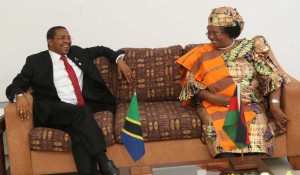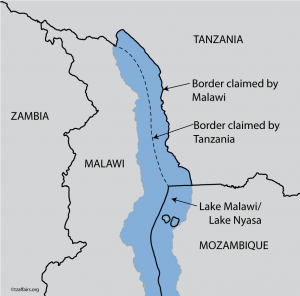The long dormant border dispute between Malawi and Tanzania has been reignited in recent months by the issuing of a licence by the Malawi government to UK company Surestream to explore for oil in the north-eastern part of Lake Nyasa. Malawi is hoping to find oil reserves of similar magnitude to those currently being exploited in Lake Albert (Uganda), estimated at 2.5 billion barrels.
Malawi claims the whole of the surface of the lake that is not in Mozambique, and their claim is supported by the Anglo-German Heligoland Agreement of 1 July 1890 which defines the border as running along the Tanzanian shore. When the British colonial government captured Tanganyika from Germany, it placed all of the water under the jurisdiction of the territory of Nyasaland, without a separate administration for the Tanganyikan portion of the surface.
In the early 1960s, Malawi’s first president, Hastings Kamuzu Banda, claimed that Lake Nyasa was part of Malawi and this was reaffirmed at the 1963 Organisation of African Unity summit, where it was accepted reluctantly by Tanzania although the dispute re-ignited in 1967-8. The Tanzanian case is based on international law which stipulates that when two countries are separated by a body of water, the border is at the middle of that body.
After meeting in August with the new Malawi President, Joyce Mbanda, President Kikwete downplayed any rumours of war over the conflict, saying that Tanzania has over the years enjoyed a good relationship with Malawi and it has no intention to strain it in any way. Technical experts from the two countries met in August at the northern Malawian town of Mzuzu to discuss possible solutions to the dispute.
However, Foreign Affairs and International Co-operation Minister, Mr Bernard Membe, was quoted as saying that “After frank and spirited discussions between the two countries, we have concluded that our differences still remain,” adding “Neighbours must endure, neighbours must always remain neighbours, and we are here because of differences in positions.” Mr Membe confirmed that the parties have agreed to cease oil exploration in the disputed areas to allow space for negotiations to take place, and that there will be a fresh round of talks in Tanzania from September 10-14. If this does not lead to an agreement, the matter may be referred to the UN International Court of Justice.



Pingback: Tanzanian Affairs » TANZANIA & MALAWI
Pingback: Tanzanian Affairs » TANZANIA & MALAWI – LATEST
Pingback: Tanzanian Affairs » FOREIGN RELATIONS